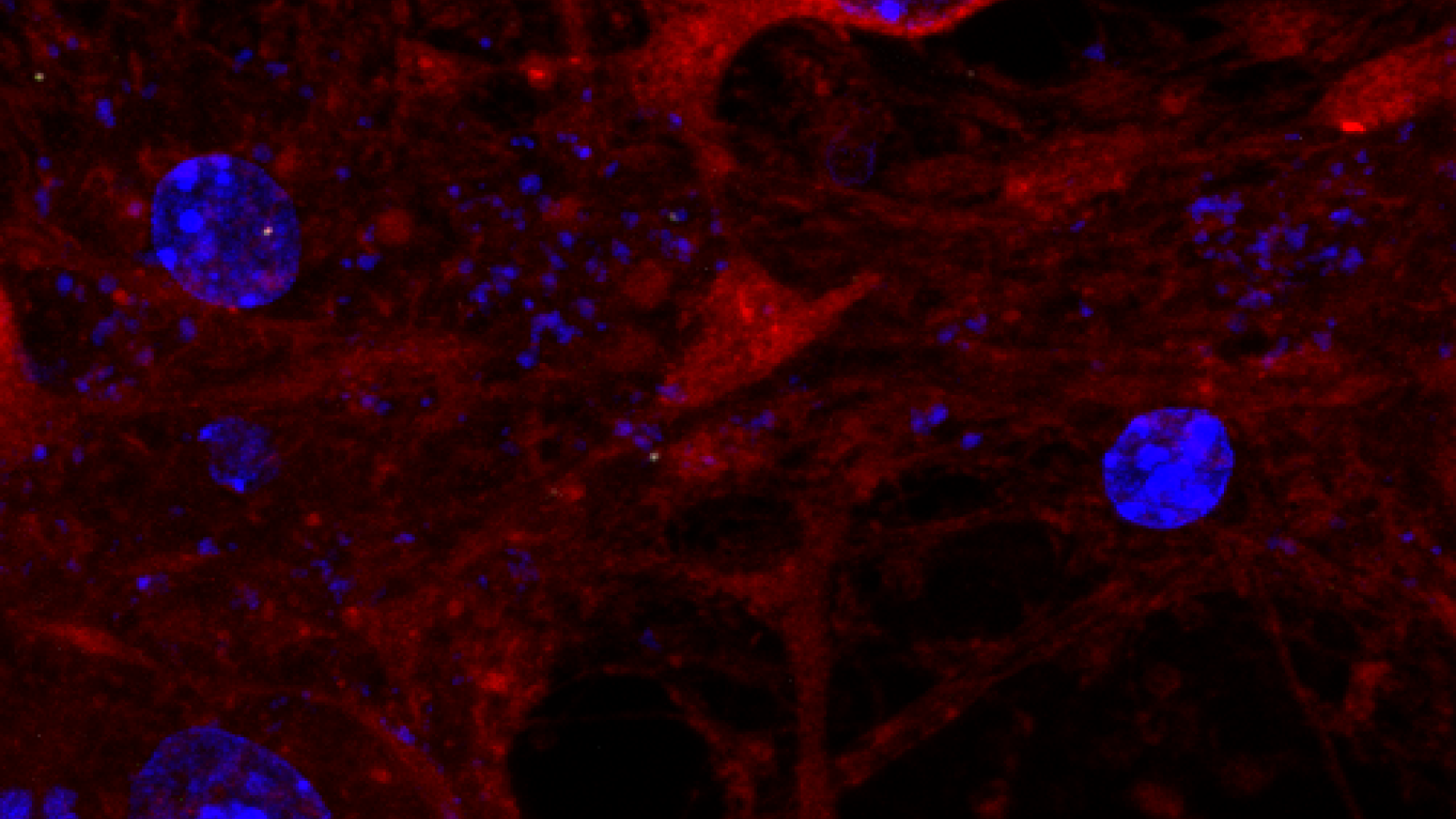A new study, led by Dr Will McEwan (UK DRI at Cambridge), has uncovered insight into the mechanisms underlying an experimental antibody therapy that could be used to target protein deposits in the Alzheimer’s brain. Scientists say the study, published in the journal Science, will enable the optimisation of future immunotherapy drugs.
Misfolded tau is a hallmark of Alzheimer’s and other neurodegenerative diseases. The protein normally helps provide structural support to nerve cells in the brain – acting as a type of scaffolding. In Alzheimer’s, it becomes misfolded and accumulates in clumps, or aggregates, which can spread from cell to cell and are strongly associated with progressive cognitive decline in the disease.
Previous studies have shown that antibodies targeting tau can reduce the levels of aggregates in mouse models, and the method is under investigation as a therapeutic intervention in humans. However, the underlying mechanisms are not yet well understood. In this study, Dr McEwan and his team discovered a role for an antibody receptor protein, known as TRIM21. Unusually for an antibody receptor, TRIM21 is expressed inside cells, meaning that in order for TRIM21 to play a role, antibodies must somehow be gaining access to the cell interior.
an antibody receptor protein, is implicated in the mechanism underlying immunotherapy against tau
Our study will enable new research to develop antibodies that better use the intracellular TRIM21 pathway, while avoiding many of these inflammatory effects. This may yield safer and more effective immunotherapy treatments.Dr Will McEwanGroup Leader at the UK DRI at Cambridge
Dr McEwan explained:
“In our study, we demonstrated that tau aggregates enter cells and bring any antibodies attached to them into the cell as well. Once inside the cell, TRIM21 binds to the antibodies. TRIM21 is what is known as a ubiquitin ligase, which means it can send proteins for degradation. In doing so, TRIM21 can prevent tau aggregates from triggering further aggregation.”
Dr Aamir Mukadam, who co-authored the study, found that immunotherapy in mouse models which do not express TRIM21 was no longer able to reduce the levels of tau aggregates in the brain. Similarly, in cellular models, the team found that TRIM21 enabled antibodies to prevent the spread of tau aggregation.
Dr McEwan continued:
“Cell-surface antibody receptor proteins are known to mount potent inflammatory responses, meaning inflammation in the brain is a major risk of antibody therapy for targets in the brain. Our study will enable new research to develop antibodies that better use the intracellular TRIM21 pathway, while avoiding many of these inflammatory effects. This may yield safer and more effective immunotherapy treatments.”
New Alzheimer’s antibody drug lecanemab made headlines recently, as it was reported to slow cognitive decline in people with early-stage Alzheimer’s disease. During the trial, some people experienced inflammatory side effects such as swelling or small bleeds in the brain.
Lecanemab targets beta-amyloid, an extracellular protein aggregate, and is therefore not expected to involve TRIM21. But the trials demonstrate the risks, and the potential rewards associated with immunotherapy in neurodegenerative disease. For intracellular proteins such as tau, future antibody therapies which make better use of the TRIM21 pathway while avoiding other inflammatory receptors, could reduce the risk of these side effects occurring.
To find out more about Dr Will McEwan’s work, visit his UK DRI profile. To stay up to date on the latest research news and institute updates, sign up to receive our monthly newsletter, ‘Inside Eye on UK DRI’.
Reference: Mukadam AS, Miller LVC, Smith AE, Vaysburd M, Sakya SA, Sanford S, Keeling S, Tuck BJ, Katsinelos T, Green C, Skov L, Kaalund SS, Foss S, Mayes K, O'Connell K, Wing M, Knox C, Banbury J, Avezov E, Rowe JB, Goedert M, Andersen JT, James LC, McEwan WA. Cytosolic antibody receptor TRIM21 is required for effective tau immunotherapy in mouse models. Science. 2023 Mar 31;379(6639):1336-1341. doi: 10.1126/science.abn1366.
Article published: 31 March 2023
Banner image: Tau assembly being attacked by TRIM21 inside a neuron. Credit: Annabel Smith, McEwan lab.
